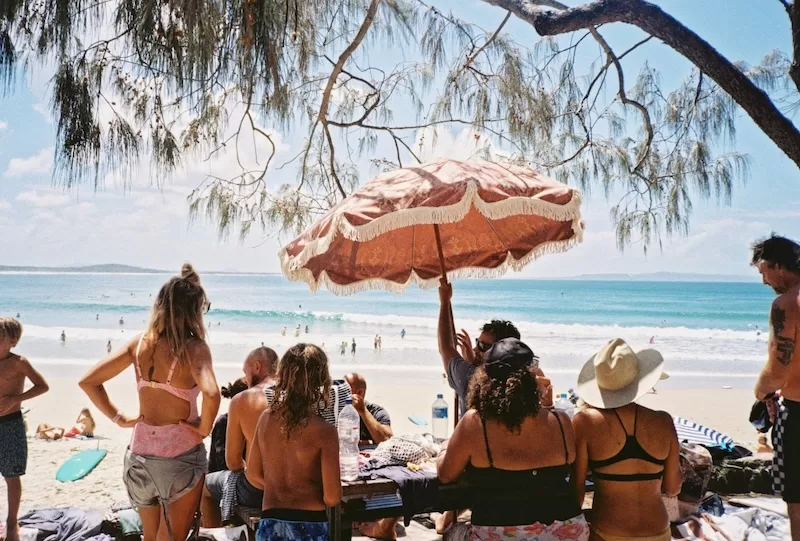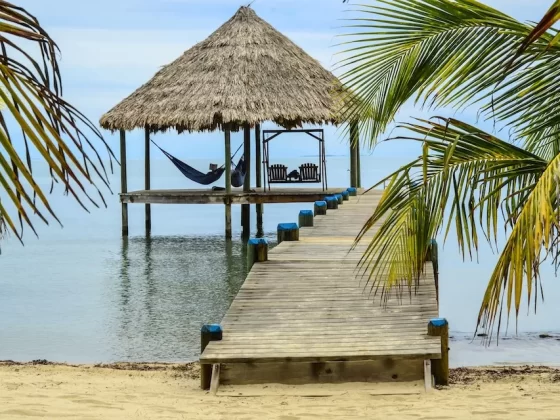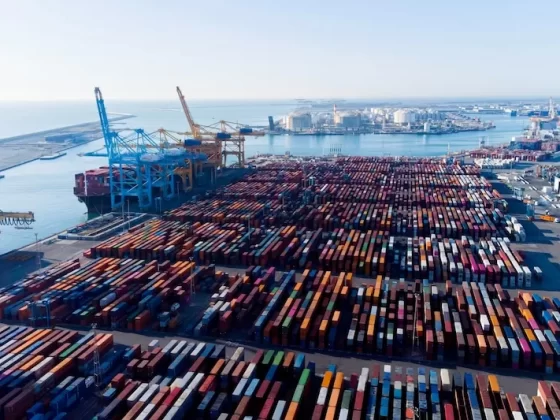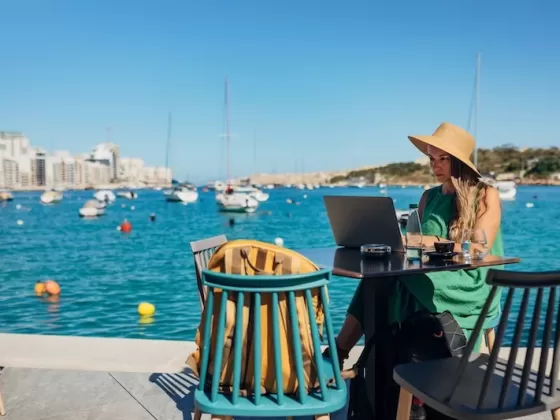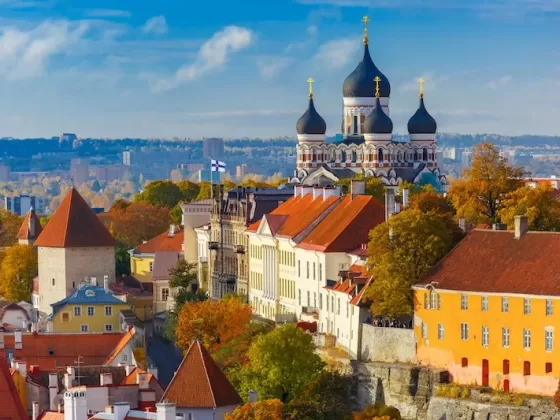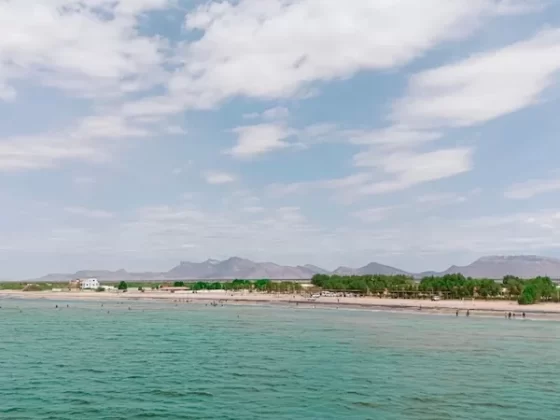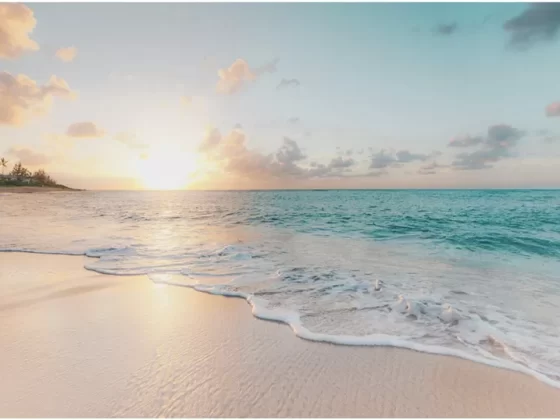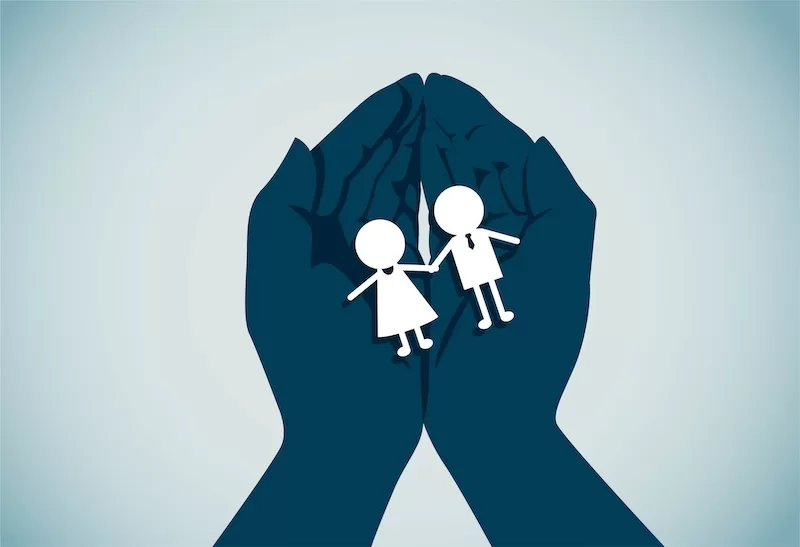Moving to Australia? It’s becoming a popular decision; 446,000 people migrated to Australia from 2023 to 2024 alone. Its shimmering facade and beach-adorned coastline attract expats seeking a classic Aussie lifestyle and the promise of sunshine. Australia’s immigration system is strict but not unreasonable, enticing expats to flock to programs like Working Holiday Visas (WHV) and employer sponsorship like bees to honey.
I’ve experienced life as an expat in Australia—warts and all. And, after two years of bouncing around the country on a WHV, there were a few surprises along the way. Here are ten things to know before shifting your life Down Under.
#1. It’s Huge, And You Might Never See “The Outback”
Unless you’re moving from a large country, conceptualizing the sheer scale of Australia is a learning curve in itself. Did you know it’s the world’s largest island? Roughly the same size as America or China. Driving from Perth (on the East Coast) to the Gold Coast (on the West) takes nearly 50 hours, spanning more than 2,700 miles.
Australia has six states and two territories: Victoria, New South Wales, Queensland, Western Australia, South Australia, the Northern Territory, the Australian Capital Territory, and the isolated island of Tasmania that sits off the southern coast. It gets teased for its remoteness from time to time, but don’t let the distance put you off, as Tasmania has stunning hikes and a thriving wine scene.
When they think of the Australian outback, many people might visualize endless red deserts, but, in reality, not many actually see the outback. The most densely populated urban areas are on the country’s coastlines. Unless you fly (or brave the drive) to Uluru, you’ll see more rainforests and bush than outback dust.
Read more like this: Australia Travel Tips: Things to do on your vacation

#2. The Wildlife Isn’t As Scary As You Think—Usually
There is no escaping Australia’s reputation as the devil’s own zoo. Are there dangerous animals in the country? Absolutely. Are they as scary as you think? Usually not. The reality is that you’ll rarely cross paths with any of the scariest creatures in Australia. It does depend on where you move, though. For instance, while the south is crocodile-free, the northern regions deal with regular attacks. It’s wise to do some state-specific research.
When it comes to ocean dangers, generally speaking, if you want to take a swim, I recommend doing so at beaches with lifeguards and shark alarms. Inner-city suburbs and semi-rural areas are pretty low on snakes. And even spiders aren’t as big a deal (or as big) as everyone tries to convince you. Just keep some spider spray handy (and don’t accidentally inhale any—speaking from experience).
Chances are the scariest animals you’ll encounter are magpies. These birds are nothing like their European relatives. Fueled by territorial rage, Australian magpies embark on swooping season from August to October—attacking pedestrians, cyclists, and pets who so much as blink in their direction. Kangaroos win runner-up. Terrifying in person, they reach up to six feet tall and are known to bully dogs.
With all that said, though, don’t let the wildlife tales worry you too much. Most Australians adore their wildlife anyway, and there will always be a friendly neighbor well-versed in removing unwanted animals.

#3. A Simple Swim Is An Olympic Sport
One thing nobody prepares you for is the sheer power of Australia’s waves. There’s a reason why the country has a reputation for its surfers, and you can expect regular waves of 3ft to 4ft, with occasional beasts reaching as high as 10ft. It is a sharp shock for those accustomed to the comparatively flat waters at European beaches.
Watching all the Australians frolic around makes it look easy, but honestly, it’s not, and there is a strategy to navigating the waves: duck under them as they roll in. Be conscious of rip tides and ideally, only ever swim when a lifeguard is present. It’s generally safer to swim at the ocean pools instead. Watch a few episodes of the reality show Bondi Rescue before relocating. It’s actually fairly accurate.
#4. Housing Can Be Stressful
Buying property in Australia is notoriously hard. In major cities like Melbourne and Sydney, the competition is fierce, and there’s a big trend towards off-market sales, with realtors facilitating a lot of behind-the-scenes exchanges for exclusive clientele.
Renting is much easier. If you’re seeking a sharehouse, checking Facebook groups is often the most efficient route. Australia’s backpacker culture creates a freshers-like experience—think lots of socialising, casual parties, and spontaneous friendships, much like the first-year university vibes. WHV eligibility is from 18 to 30 years old (or 35 for some nationalities), so that aspect of house shopping is fun and sociable. Everyone’s in the same boat and looking to connect with like-minded people.

#5. If In Doubt, Go to the Beach
Personally, it didn’t take me long to adjust to the Aussie beach culture. My best friend jokes that I’m solar-powered, and my fast-established routine quickly proved her point. Woke up early? Catch the sunrise at the beach. Struggling to entertain the children I was nannying? Take them to the beach. Finished work early? You guessed it—an evening stroll on the sands. There’s always a conveyor belt of traffic on Australia’s most accessible beaches. Yoga groups, run clubs, volleyballers, swimmers, surfers, and even sunbathers gather at all hours.
Australian culture hinges on its beaches. Since the country has its largest cities on its coastline (sleepy inland Canberra is the odd one out), beach habits are nationwide. Even Brisbane, a port city, has an artificial solution—Streets Beach on South Bank’s man-made lagoon.

#6. Healthcare Is A Mixed Bag
Healthcare is generally good in Australia. The nation relies on Medicare, a tax-funded system that entitles all citizens to free (or extremely low-cost) treatments. It works on a similar basis to the NHS in the UK. For expats, though, the question is whether or not you qualify. Unfortunately, the official stance is that most visitors are not eligible, which means relying on your own private health insurance and potentially expensive bills.
Some visa holders can access “special treatment” and save themselves serious cash. Those obtaining permanent residency or sponsorship are eligible. Certain countries, like the UK, also have a reciprocal healthcare agreement, which is worth researching. I didn’t realize I could potentially apply for Medicare and, as a result, routinely shelled out $80 when I needed to see a GP.
#7. Coffee Is Taken Seriously
In Australia, there’s a major source of pride behind simple cups of coffee. The country takes this product extremely seriously, and as a result, its brews are considered some of the best in the world. It’s a mysterious claim to fame, especially given the country’s colonial, tea-drinking past. The coffee culture is widely credited to the WWII influx of Italian immigrants, and since then, Australia has gradually put its own spin on things.
Flat whites are the stereotypically “Australian” choice. Brunch culture has spiked coffee sales nationwide, with Melbourne emerging as the caffeine lover’s homeland.

#8. Nightlife Can Be Lackluster
This might be surprising, but nightlife can be a little disappointing in Australia—at least until recently. In Sydney, for example, lockout laws (a rule whereby you can’t enter a nightlife venue after 1:30 am) ended in 2021 but wreaked havoc until then. You’d have to either stay in a single venue or host house parties. Clubs like The Argyle and the secret bars along Clarence and York Street have always been much-loved haunts, but that ticking clock was always a buzz kill.
Read more like this: Retire in Australia
Cities like Brisbane still follow suit, with plenty of rooftop bars but a lack of rambunctious nightlife. Even bottle shops close early, with alcohol not being widely sold on regular supermarket shelves. You’ll find pre-drinks in separate sections, run under a different license. And forget pints in pubs, where it’s small schooners instead.
While Australia’s nightlife can feel slightly slower than expected, gambling runs rampant. Expect “pokies” (people who love to play poker) in most pubs, with worn-out seats that remain occupied for much of the night.

#9. State Rivalries Are Real (You’ll Soon Pick Sides)
There is fierce competition between those eight states and territories. Call it a sibling rivalry spurred on by state-based sporting events and age-old stereotypes. Melbourne, Sydney, and Canberra are a particular hot-headed trio. Some say Canberra was only crowned the capital because nobody could decide between New South Wales and Victoria. Similarly, Queensland and New South Wales butt heads during the State of Origin season—the rugby competition breaks a state’s heart each June.
Which is best? I’ll let you decide, but many people vote with their feet (or suitcases). The state you pick to be your new home will quickly have you taking sides.
#10. Australia Runs Off a Sporting Calendar
Surf, sun, and sport should be the Aussie mantra. When Australians aren’t watching elite ocean performances, like the surfers at Margaret River Pro, there’s a rapid succession of other sporting events on the nation’s calendar.
Rugby (and that State of Origin battle each June) is a big one. AFL, often compared to Gaelic football, is another, with its heavily attended Premiership Season games. There’s more, though. The Big Bash cricket league, the September Sydney Marathon, and horse races like the Melbourne Cup are all lovingly marked on calendars. If you can hit it, ride it, or run with it, Australians give it their full attention.
Be prepared to become a sporting enthusiast when moving to Australia. You might as well; you’ll know the scores and results, whether you like it or not.

Should You Make the Leap?
Moving to Australia is a cocktail of wild nature, sun-soaked coastlines, and unexpected curveballs. It’s easy to romanticize the move—visions of Bondi mornings, flat whites in hand—but the reality is far more textured. From surfing the housing market to dodging swooping magpies, there are things you’ll only learn by diving in.
But the truth is that Australia doesn’t just give you a new postcode. It gives you a new rhythm. It resets your sense of distance, danger, and delight. If you’re up for the ride, Australia offers a wild and wonderful chapter. Just remember—it’s not about taming the country. It’s about letting it untame you, just a little.
Read more like this: Job Visas in Australia
———————————-
Eibhlis Gale-Coleman is a travel writer from the UK. She has an ever-growing bucket list of “everywhere” and took her first solo trip abroad at 16 to volunteer in marine conservation.
